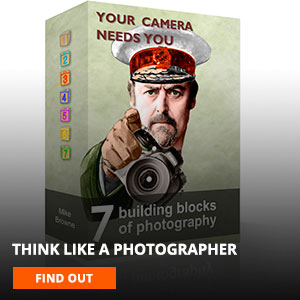Which camera is best for you?
Which camera is best? I am asked that 100 times a week because when we're starting out in photography it's easy to think there's a best camera and it will lead us to better images.
But what is a 'better' image? Is it one that has beautiful lighting, great composition and exposure to look just the way we want it to?
Or is it an image with massive resolution with perfect clarity when zoomed right into it?
For me improving my photography is all a function of the first question. These are the things which will make images exciting to look at and make me want to hang them on the wall and show everyone. And none of them are down to the camera. They are down to the person taking the picture. The photographer him or herself. Their knowledge and execution of photography and how they make their camera dance for them. All cameras can dance beautifully if you know how to control them which is where my photography courses and workshops come in.
The question is really which is the best camera for YOU? So you have to ask yourself what you want from a camera and what you're going to do with your photos?
There are some cameras which perform better than others in extreme situations like very low light, printing huge images or being hammered as with press photography where millions of shutter releases are made. If you are most likely to be shooting in these situations you'll need a camera that can cope and that will cost more money.
High ISO and a professional wide aperture lens will be important if you want to shoot indoor or floodlit sports, birds, anything that's moving fast because you'll need a fast enough shutter speed to freeze the action. That means getting as much light through the camera lens as possible and a high enough ISO to force the shutter speed up.
Most photographers enjoy capturing things like beautiful scenery, plants, their loved ones, inspiring places, details, boats, cityscapes, cars, trains, waterfalls, their pets, still life etc. And any camera will be plenty good enough to do that beautifully. With average pixel counts over 10 these days there's plenty of space for a bit of cropping and still printing enlargements of 20 inches or more.
The way to find the best camera for you is to understand what you want to do with the images, how much you want to spend and work backwards from there. The best camera for you is one you find easy to hold and use. Just because a particular camera is best for me, it doesn't mean it's best for you. So whenever you have an opportunity to have a go with someone else's, give it a go and see if you like it. If you do then it's a match made in heaven.





































